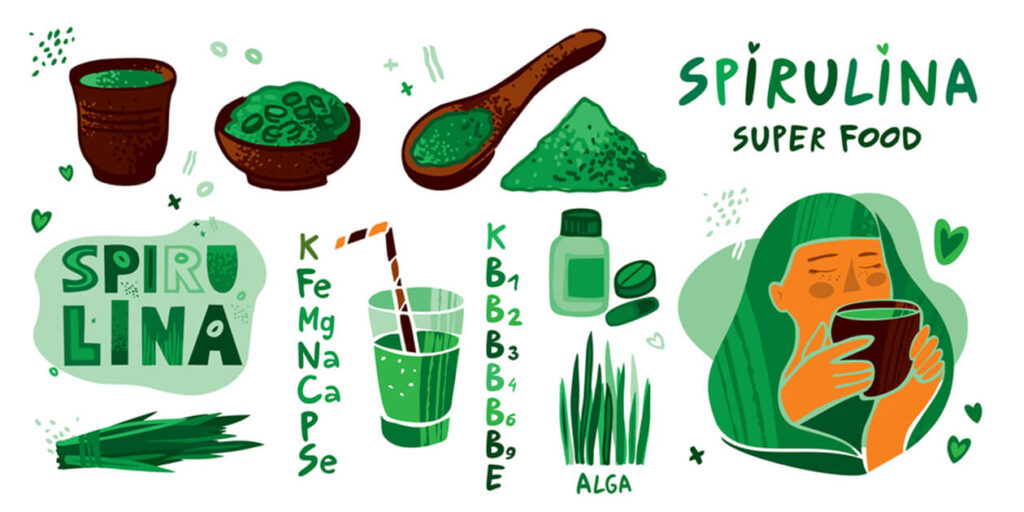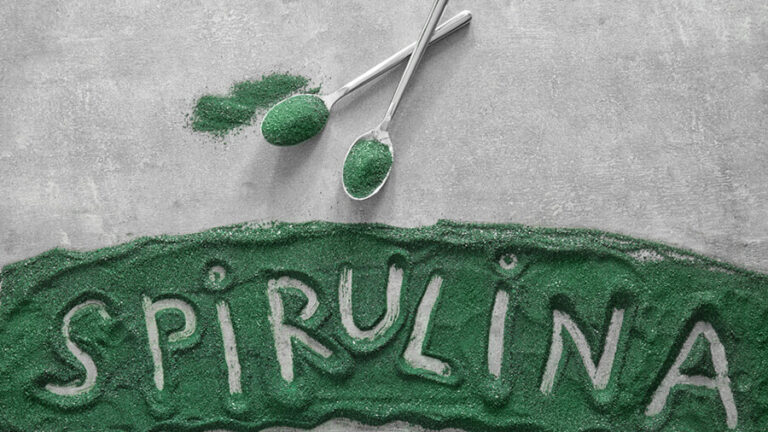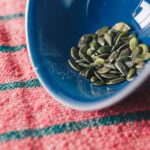Spirulina is a type of bacteria that can grow in both fresh and salt water.
It’s a cyanobacterium, a single-celled microbe that’s also known as blue-green algae.
Cyanobacterium, like plants, can make energy from sunlight through a process known as photosynthesis.
Spirulina was first ingested by the Aztecs, but it resurfaced in popularity after NASA claimed that it might be cultivated in space for astronauts to consume.
Spirulina is usually taken in quantities of 1–3 grams per day, however, doses of up to 10 grams per day have been found to be helpful.
1. Spirulina Is Rich in Nutrients.
This teeny-tiny alga is nutrient-dense. A single tablespoon of about 7 grams of dried spirulina powder contains:
4 grams of protein
11 percent of the RDI for vitamin B1 (thiamine).
15 percent of the RDI for vitamin B2 (riboflavin).
4 percent of the RDI for vitamin B3 (niacin).
Copper accounts for 21% of the RDI.
11 percent of the RDI for iron
It also has enough levels of magnesium, potassium, and manganese, as well as trace amounts of nearly every other nutrient you require.
Furthermore, the same quantity has 20 calories & 1.7 grams of carbohydrates.
A tablespoon (7 grams) of spirulina contains only about 1 gram of fat. It includes omega-3 and omega-6 fatty acids with a 1.5 to 1.0 ratio.
The Protein in spirulina is excellent compared to eggs.

2. spirulina has Antioxidant and anti-inflammatory properties.
Spirulina is high in antioxidants and it protects the body from oxidative damage.
Phycocyanin is the primary active ingredient. Spirulina’s unique blue-green color is due to this antioxidant compound.
It feature with Phycocyanin has powerful, fighting free radicals and inhibiting the production of inflammatory signaling molecules.
3. It Can Help Lower “Bad” cholesterol levels
Heart disease is the biggest explanation for death worldwide.
A higher risk of heart disease has been related to several risk factors.
Spirulina, it turns out, has a good impact on several of these characteristics. It can lower cholesterol levels, “bad” LDL cholesterol, and triglycerides, for example, while increasing “good” HDL cholesterol.
2 grams of spirulina per day significantly improved these indicators during a trial of 25 persons with type 2 diabetes.
Another study found that 1 gram of spirulina per day reduces triglycerides by 16.3% and LDL (low-density lipoprotein) which is also known as BAD cholesterol reduces by 10.1 percent in persons with high cholesterol.
Several other researchers have demonstrated that larger dosages of 4.5–8 grams per day have beneficial effects.
4. It Is Effective Against Anemia
Anemia has many different varieties.
A decrease in hemoglobin or red blood cells in your blood is the most prevalent symptom.
Anemia is a condition that affects a lot of older people and causes them to feel weak and tired for a long time.
Spirulina supplements boosted the hemoglobin content of red blood cells and improved immunological function in 40 older persons with a history of anemia in a research.
Before any recommendations can be made, more investigation is required.
5. Spirulina Helps In Fighting Allergies
Allergies can be a real pain: itchy eyes, runny nose, sneezing. And it can be hard to find something that treats all of these symptoms at once—but spirulina may just do the trick!
Spirulina is a natural supplement that has been shown to help fight allergies by treating their causes and reducing their severity. So if you have allergies, or just want to keep them at bay, consider adding spirulina to your diet!
But whether you decide that spirulina is a superfood or not, there’s no denying that it has some serious health benefits. That alone makes it worth considering. If you’ve never tried spirulina before, try out a few different sources and recipes. Add it to your diet gradually, so you can monitor how your body reacts. You might be surprised by the results!





Im pretty pleased to uncover this site. I want to to thank you for your time due to this fantastic read!! I definitely loved every part of it and i also have you book-marked to look at new stuff on your site.
please do share it with your friends and family. Thank you for your support. More info to come.
Top ,.. top top … post! Keep the good work on !
thank you kindly.
where can i buy terramycin eye ointment for my cat
Top site ,.. amazaing post ! Just keep the work on !